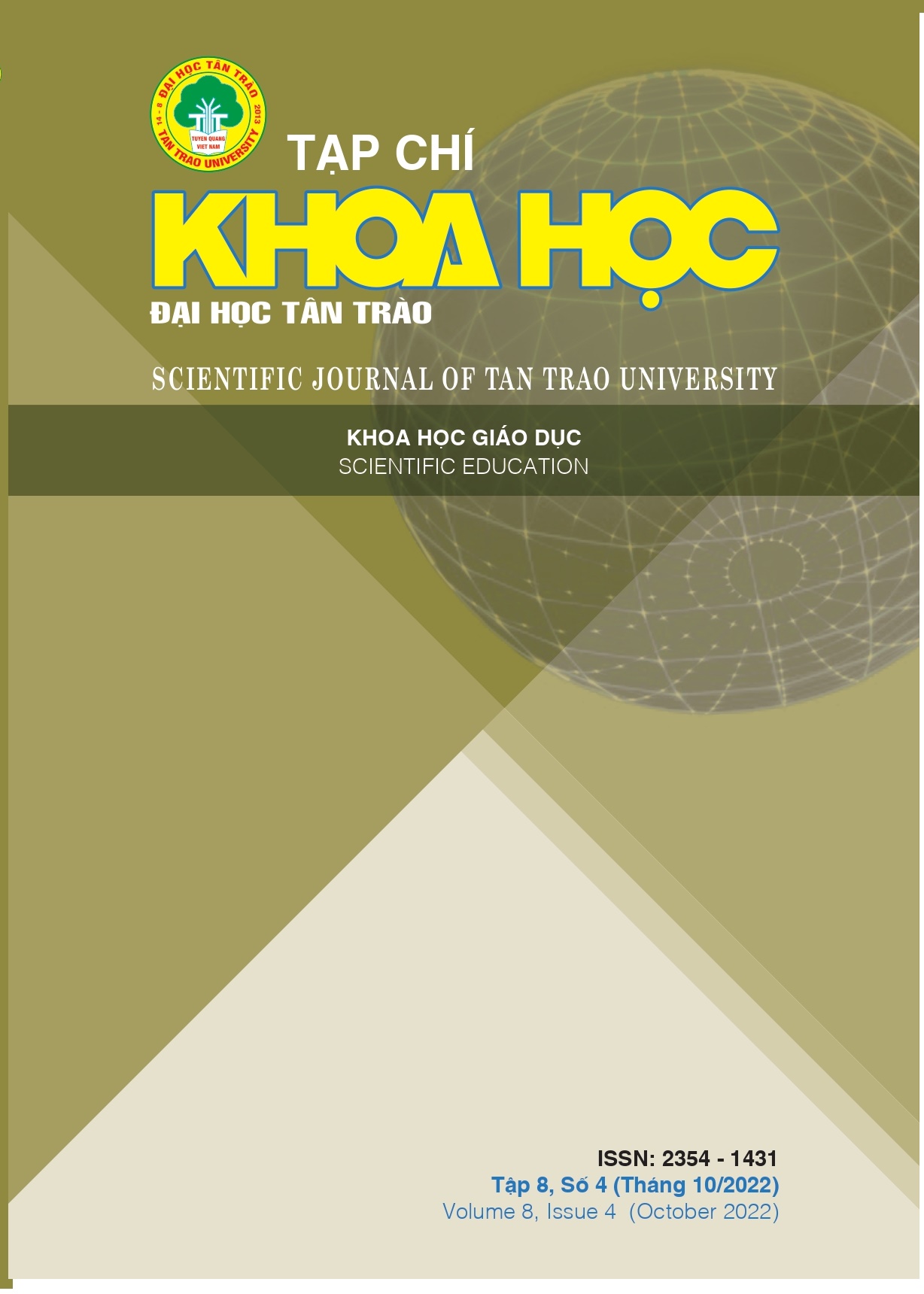THE SITUATION OF SOCIAL SKILLS EDUCATIONAL MANAGEMENT FOR KINDERGARTENS 5-6 YEARS OLD IN PHU LUONG DISTRICTIVES, THAI NGUYEN PROVINCE
DOI:
https://doi.org/10.51453/2354-1431/2022/835Keywords:
Educational management, social skills, kindergarten, preschoolAbstract
The survey aims to collect data, analyze and evaluate the current situation of social skills education management for 5-6 year old children at preschools in Phu Luong District, Thai Nguyen Province. The results show that the implementation of social skills education for preschool children has focused on maintaining order and discipline, professional sense of discipline for specialized groups, however the decentralization and decentralization to direct the implementation has been not synchronized and consistent. Examination and evaluation activities are interested and focused on checking professional records and taking time to learn from experience.
Downloads
References
[1] Dung, V. (2017), Management Psychology Textbook, Pedagogical University Publishing House
[2] Ha, N.T. (2016) Module 2 Regular refresher training. Characteristics of emotional development and social skills for preschool children
[3] Hien, B.M. (2019), Management and leadership of the school, Pedagogical University Publishing House
[4] Hoa, N.T. (2011), Curriculum for Early Childhood Education, Pedagogical University Publishing House
[5] Lan, T.T. (2007), Children's Physiology Textbook, Pedagogical University Publishing House
[6] Nguyet, L.M. (2012), Parent-child interaction with children's psychological development, Pedagogical University Publishing House
[7] Nhung, C.T.H. (2020) Organize activities to develop both emotional and social skills for preschool children in accordance with the local context. Education publisher.
Downloads
Published
How to Cite
Issue
Section
License

This work is licensed under a Creative Commons Attribution-ShareAlike 4.0 International License.
All articles published in SJTTU are licensed under a Creative Commons Attribution-ShareAlike 4.0 International (CC BY-SA) license. This means anyone is free to copy, transform, or redistribute articles for any lawful purpose in any medium, provided they give appropriate attribution to the original author(s) and SJTTU, link to the license, indicate if changes were made, and redistribute any derivative work under the same license.
Copyright on articles is retained by the respective author(s), without restrictions. A non-exclusive license is granted to SJTTU to publish the article and identify itself as its original publisher, along with the commercial right to include the article in a hardcopy issue for sale to libraries and individuals.
Although the conditions of the CC BY-SA license don't apply to authors (as the copyright holder of your article, you have no restrictions on your rights), by submitting to SJTTU, authors recognize the rights of readers, and must grant any third party the right to use their article to the extent provided by the license.


